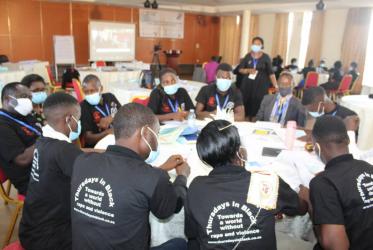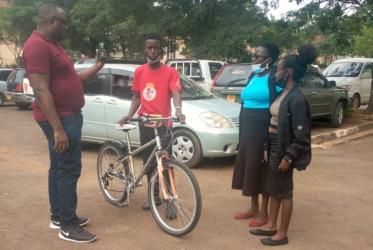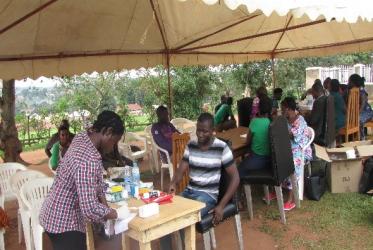Displaying 1 - 20 of 38
In Uganda, resilience and hope overshadow stigma
31 July 2020
Young people in Togo: “Hear our voice! We want to tell our stories!”
07 November 2019
Youth leaders: “We will stop at nothing” to end HIV and violence
17 October 2019
Frontline advocates in Uganda are putting a stop to HIV stigma
16 September 2019
WCC treatment manuals address HIV challenges in Uganda
02 August 2019
Knowledge of gender roles deepens in Togo
03 June 2019












